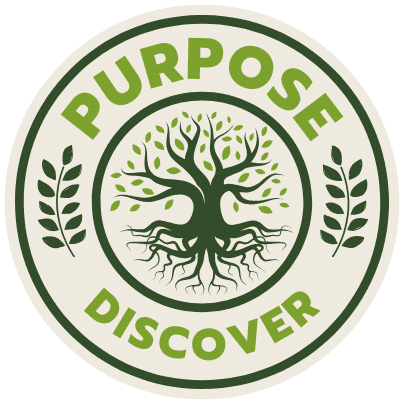Let’s be real: navigating mental health can feel like an endless labyrinth. There are days we’re cruising, and others where it seems like every small thing knocks us off balance. What if I told you, though, that one of the most powerful stabilizers for our mental well-being isn’t found in a medicine bottle or on a therapist’s couch (though those can certainly help) but rather in something as fundamental as having a purpose?
Purpose. It sounds like one of those “big life words” people throw around, right? But finding purpose isn’t reserved for sages or monks meditating on mountaintops—it’s for all of us. Whether we realize it or not, purpose shapes our thoughts, our mental resilience, and even our happiness. The role of purpose in mental health is immense, often acting as both a shield and a compass. Let’s dive into the why and the how.
Why Purpose Matters for Our Brains
Ever noticed how we feel more focused and even happy when we’re working toward something that really resonates with us? Well, there’s science backing this up. Researchers have found that people with a clear sense of purpose generally have lower levels of depression, anxiety, and stress. When we have a reason to get out of bed (besides grabbing our phones), our brains release a cocktail of feel-good chemicals like dopamine and serotonin, keeping us feeling grounded and motivated.
Think of purpose as the GPS for our brains. In times of stress or uncertainty, purpose helps us stay oriented, reminding us of what matters most, which makes it easier to prioritize our thoughts and responses. With purpose, life’s inevitable setbacks feel like detours rather than dead ends.
But Isn’t Purpose…Kind of Big and Scary?
Oh, it can be. The word “purpose” often gets this mystical, high-stakes vibe, like it’s the holy grail we’re all hunting for. Cue the dramatic music and the heavy questions: What’s my purpose? Am I on the right path? But purpose doesn’t have to be epic to be effective. In fact, small, everyday purposes can be just as grounding as grand, world-changing ones.
Maybe your purpose is being there for a loved one, honing a skill, helping others, or even mastering the art of making the perfect cup of coffee each morning. Micro-purposes add up, creating an overall feeling of fulfillment without the pressure of one singular, life-defining mission. Purpose is flexible and personal—it can shift, evolve, and adjust with us as we grow.
How Purpose Fuels Resilience
When we’re anchored by a sense of purpose, we’re better equipped to handle life’s challenges. Think of it like this: without purpose, hard times feel like weightless chaos; with purpose, they’re still hard but with a sense of meaning attached. If you’re working toward something you care about, even setbacks feel like part of the process rather than random acts of life.
Take Viktor Frankl, for instance, a Holocaust survivor and psychiatrist who wrote the incredible book Man’s Search for Meaning. He observed that people who found meaning, even in the harshest of conditions, were often the most resilient. According to Frankl, having a “why” can help us endure almost any “how.” And while most of us (thankfully) aren’t enduring situations as horrific as Frankl’s, his insight speaks volumes to the importance of purpose as a pillar for mental toughness.
How to Find Purpose (When You Have No Idea Where to Start)
Okay, so purpose is great and all, but what if you’re not exactly sure what yours is? That’s okay! Finding purpose is a journey, not a light-switch moment. Here are a few tips to get you started:
Follow Your Curiosity: Start with what interests you, however small. Are you drawn to writing? Helping people? Making art? Purpose often lies where your natural inclinations and curiosities intersect.
Experiment Boldly: We don’t find purpose by sitting and waiting for it. We stumble across it by doing, trying, and yes, even failing. Take up new hobbies, volunteer, or dive into projects that make you feel alive.
Look at Your Values: What do you stand for? What gets you fired up? Sometimes, understanding your core values—like compassion, creativity, or integrity—can illuminate a purpose you hadn’t consciously recognized.
Reflect on What Brings You Joy: Purpose often involves serving others in some way, but it can also be about doing things that genuinely make you happy. The energy you bring to joyful pursuits has a funny way of spreading to others.
And remember, purpose doesn’t have to be grandiose. Even small, everyday goals can provide a meaningful sense of direction. A person whose purpose is to make people laugh contributes just as much as someone who’s out to “change the world.”
Purpose and Community: Finding Your Why Together
There’s a reason humans are social creatures: we thrive on connection. Often, purpose feels most alive when it’s linked to the people around us. Whether it’s supporting friends, raising a family, or even being part of a local organization, our sense of purpose gets a major boost when shared. Being a part of something bigger than ourselves deepens our perspective and enriches our lives. So if you’re feeling stuck, seek out those who inspire you or align with your goals, and let that connection fuel you forward.
In fact, if you’re looking to explore the deeper layers of purpose and connect with a community, check out What Is Your Purpose? for inspiration, resources, and some pretty amazing insights on the power of purpose. They might just help you find your next steps.
In Conclusion: Why Purpose Changes Everything
At the end of the day, purpose is like a gentle but steady hand, guiding us through the noise and chaos of life. It gives us a reason to keep moving forward when things get tough, a reason to celebrate small wins, and a sense of meaning in even the most mundane of tasks. And let’s face it, life is always going to have a few curveballs. Having a “why” to fall back on? It’s priceless.
So, whether your purpose is a sprawling vision or a small but heartfelt mission, remember that it’s all meaningful. And if you’re still figuring it out, well, that’s part of the journey too. Life, after all, is a work in progress—and so is purpose.
Author
-
Cassian studies purpose, calling, and work that matters, then turns findings into clear, usable guidance. Plain language. Careful sourcing. No fluff. When Scripture is in view, he handles the text with context and respect. Expect practical steps you can try today.
View all posts


